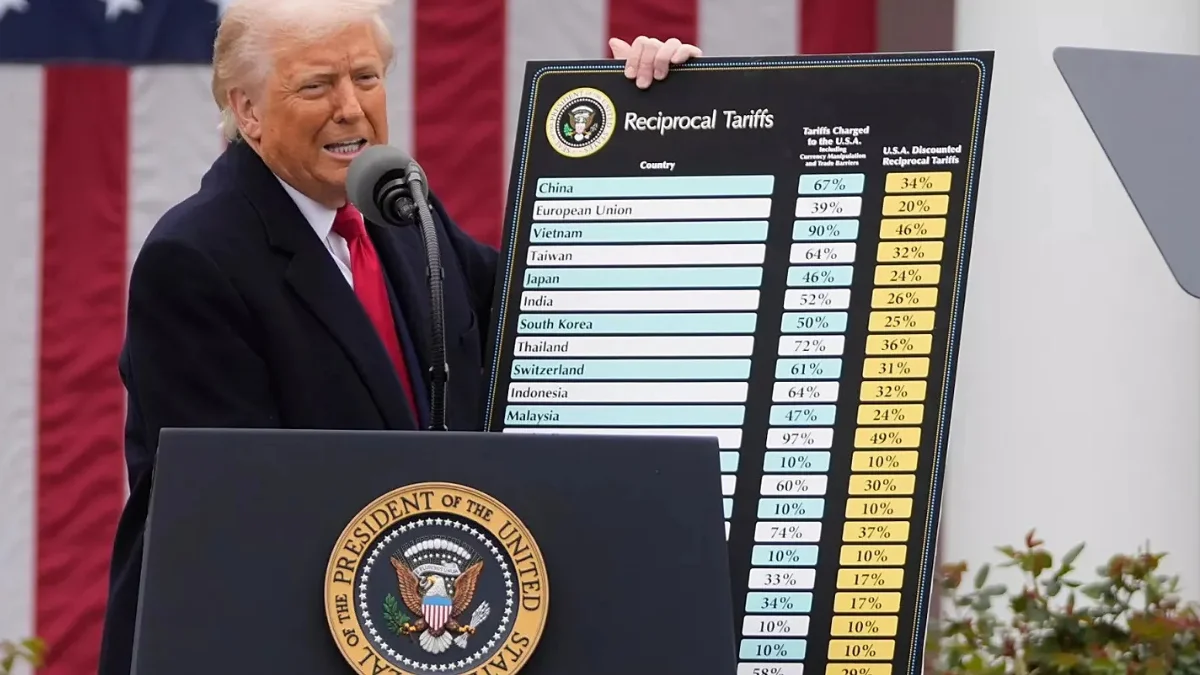Necessary Always Active
Necessary cookies are required to enable the basic features of this site, such as providing secure log-in or adjusting your consent preferences. These cookies do not store any personally identifiable data.
|
||||||
|
||||||
|
||||||
|

President Donald Trump threatened on Monday, August 25, 2025, that nations implementing digital taxes on services could face “subsequent additional tariffs” on goods if they do not remove such rules, Reuters reported. Sources said the Trump administration was considering sanctions on EU or member state officials involved in enforcing the Digital Services Act.
This latest development signals a continuation of Trump’s aggressive trade policies from his previous term. Trump said in a social media post, “With this TRUTH, I put all Countries with Digital Taxes, Legislation, Rules, or Regulations, on notice that unless these discriminatory actions are removed, I, as President of the United States, will impose substantial additional Tariffs on that Country’s Exports to the U.S.A., and institute Export restrictions on our Highly Protected Technology and Chips.“
Trump’s digital tax stance has become a major element of his economic strategy for 2025. The president argues that countries taxing U.S. tech companies are engaging in discriminatory practices that hurt U.S. businesses abroad.
Major tech companies like Google, Amazon, Meta’s Facebook, and Apple have faced increasing pressure from European nations seeking to collect taxes on their digital services. These companies generate billions in revenue from overseas markets but often pay minimal taxes in those countries.
Trump views these digital service taxes as direct attacks on American economic interests. His administration believes that foreign governments are specifically targeting successful U.S. companies to generate revenue for their own budgets.
Trump’s 2025 digital taxes approach involves multiple tools to pressure foreign governments. The administration has made clear that trade retaliation will be swift and substantial for countries that proceed with digital tax implementations.
White House officials indicate that the president is prepared to use executive powers to impose immediate consequences. This includes raising existing tariffs and creating new trade barriers for countries that refuse to abandon their digital tax plans.
The strategy also involves working with Congress to develop longer-term legislative solutions. However, Trump prefers using presidential authorities that allow for quick implementation without lengthy congressional debates.
The threat of U.S. tariffs on countries with digital taxes extends beyond European Union members to include other developed nations. Countries like Canada, Australia, and South Korea have also considered or implemented similar tax measures.
Trump’s team has prepared lists of products from various countries that could face increased tariffs. These measures would affect everything from luxury goods to industrial equipment, depending on which nations proceed with digital taxation.
The administration believes that economic pressure through tariffs will force foreign governments to reconsider their digital tax policies. Previous trade disputes have shown that countries often modify their positions when facing substantial economic consequences.
Trump’s tariffs on EU exports seem likely, as the European Union has pushed ahead with digital service taxes. Several member states have adopted these taxes despite U.S. objections.
European officials have defended their digital tax policies as necessary for fair taxation in the modern economy. They argue that tech companies should pay taxes where they generate profits, not just where they are headquartered.
However, Trump views EU digital taxes as protective measures designed to benefit European competitors at American expense. His administration has prepared extensive lists of European products that could face tariff increases.
The most dramatic escalation could involve U.S. sanctions on EU officials who champion digital tax policies. Trump’s team has discussed targeting individual European leaders with travel restrictions and asset freezes.
This approach would represent a significant diplomatic escalation beyond traditional trade measures. Sanctions on allied officials would strain relationships but demonstrate American resolve on digital taxation issues.
Such measures remain under consideration rather than finalized policy. However, their discussion shows how seriously the Trump administration views digital tax threats to American companies.